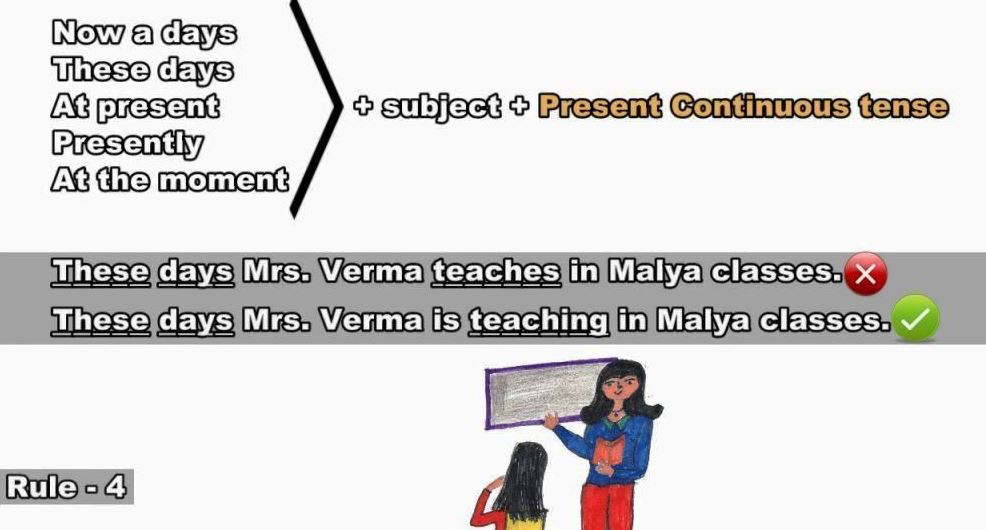Tense Rules
Golden Rules
Rule1:-
If a sentence starts with past tense, it can only end with past tense. If a sentence starts with present tense, it can end with present, past or future tense; but if a sentence starts with future tense, it can only end with simple present tense.
Starting/ Ending of Sentences
♦ Past Tense ⇒ Past Tense
- He said he was going to the market. (correct) [usage of ‘was going’ as ‘said’ is used in starting]
♦ Present Tense ⇒ Present, Past or Future Tense
- I know you will do it. (correct) [can end in any tense]
♦ Future Tense ⇒ Simple Present Tense.
- We will not go there if it rains. (correct) [usage of ‘simple present tense (it rains)’ as sentence starts with future tense]
Rule2:-
When two of the future course of actions are stated then simple present tense is used with the clause beginning with if/ till/ until/ unless/ when/before/ after/ as soon as/ as long as/ in case / even if etc. (time indicator words)
- We will go there even if it rains. (correct) [two actions of future- a) will go | b) rain, time indicator word- even if]
Rule3:-
The universal truths are always expressed in simple present tense. Even if a sentence starts with past tense & then also the universal truth must be in simple present tense.
- Anita said that the earth revolves around the sun. (correct) [starts with past tense, ends in simple present tense.]

If a sentence starts with the above phrases/words then it should be used in present continuous form.
Rule5:-
We should not use present continuous tense with verb of perception & thinking processes like smell, taste, hear, know, think etc. Also, present continuous tense should not be used with verb showing possession like have, own, comprise etc.
-It is smelling delicious. (incorrect)
-It smells delicious. (correct)
-I am having a scooter. (incorrect)
-I have a scooter. (correct)
Rule6:-
If the sentence starts with- This is the first time Or This is the last time, then it is always in present perfect form.
• This is the first time/ last time + subject + has / have/ +v3
- This is the first time in my life, I have heard such an interesting story. (correct)
Rule7:-
If yet, so far, already, recently are used in the sentence, then helping verb is always used in the Perfect form.
- She did not prepare her breakfast yet. (incorrect)
- She has not prepared her breakfast yet. (correct)
Rule8:-
Since + point of time & for + period of time are used with Perfect form of tense.
- I had known him for 10 years. (correct)
- I have been working in this project since last month. (correct)
Full Syllabus in 1 Video [Contains Everything basic to advance]